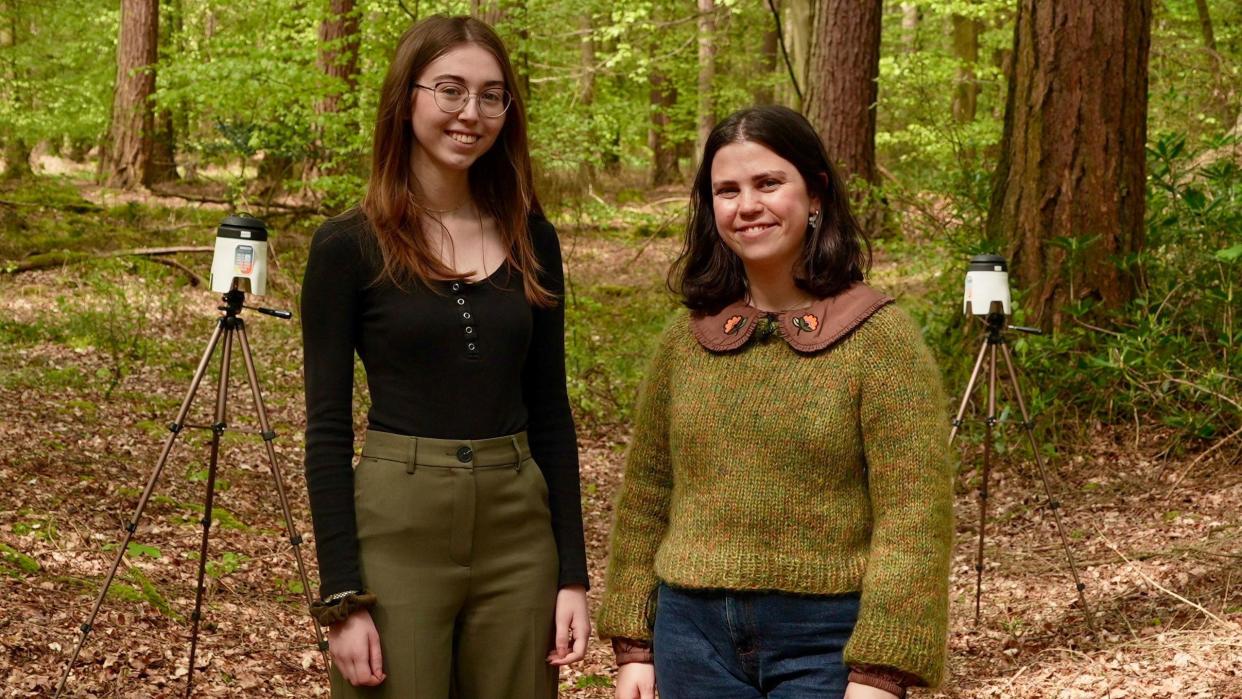Testing DNA in the air may make food cheaper

Scientists sampling DNA in the air to monitor the spread of deadly diseases say their work could help make food prices cheaper.
The Earlham Institute said its air sampler processes detect bacteria, viruses and other micro-organisms - which pose a threat to plants, animals and humans - more quickly and accurately than other techniques.
This could help farmers grow crops more cheaply and efficiently as they would not need to use as many chemicals.
It could also transform environmental conservation work as well as public health measures.
All living things are constantly shedding bits of DNA into their surroundings.
Mia Berelson, who is a PhD student at the institute, says this technique gives us an idea of what is living where, and when, very quickly.
"Each device works like a really big hoover. They suck in over 200 litres of air per minute," she says.
"The air goes through the filter, and anything in the air - like bits of bacteria, skin cells, bits of pollen - that all gets stuck on the filter."
That DNA will then be sequenced and a profile will be created of all the different organisms detected in the area.
The Earlham Institute has been sampling the air near farmers' fields for several years but is now also sampling coastal, forest and city locations too.
Eight samplers have been placed across Norfolk including Brancaster, Norwich city centre, Thetford Forest and Carlton and Oulton marshes.
There are many more now in Suffolk, Cambridgeshire, Lincolnshire and Oxfordshire.
The team switches on the devices at the same time for one hour and will repeat the experiment every three months to get an idea of seasonal changes.
The full results will be analysed in Spring 2025.
Post-doctoral scientist Darren Heavens says: "Food will be cheaper.
"If we inform the farmer that there's a pathogen in the air, he can take a more targeted approach when it comes to spraying [chemicals].
"If he only has to spray one, he'll save money. If the pathogen's not there at all, he won't have to spray at all, again saving money.
"If he can save money, that can be passed on and the customer will get a cheaper product."
But the research has only just begun, so it will be a while before any difference may be noticed at the checkouts.
Follow East of England news on Facebook, Instagram and X. Got a story? Email eastofenglandnews@bbc.co.uk or WhatsApp us on 0800 169 1830

